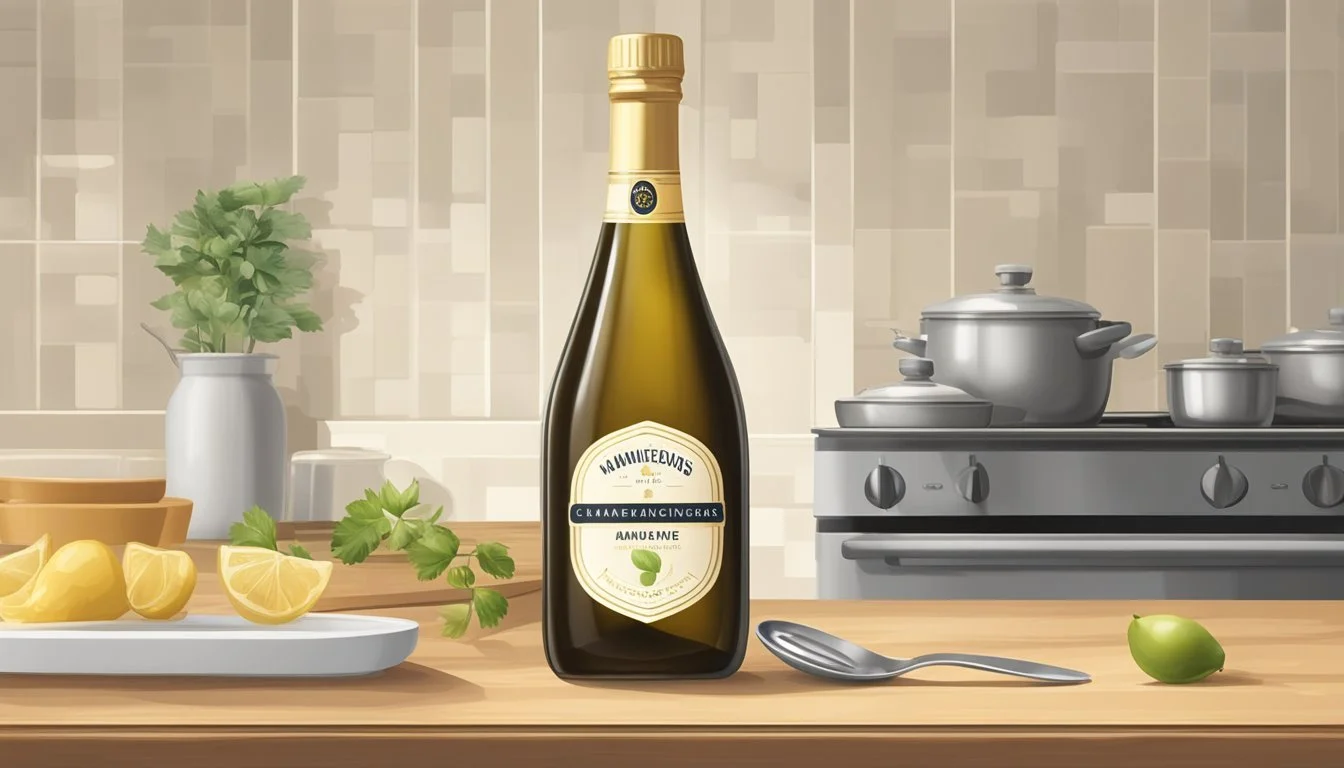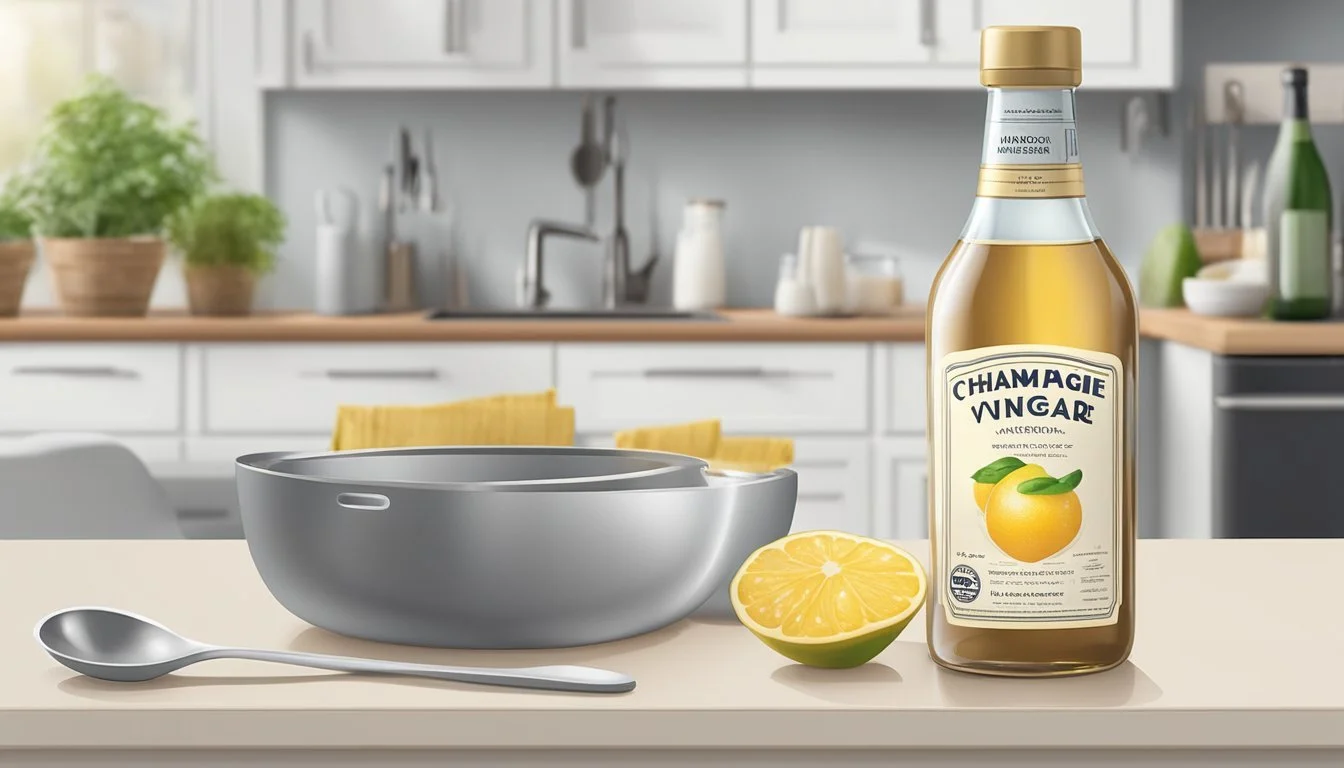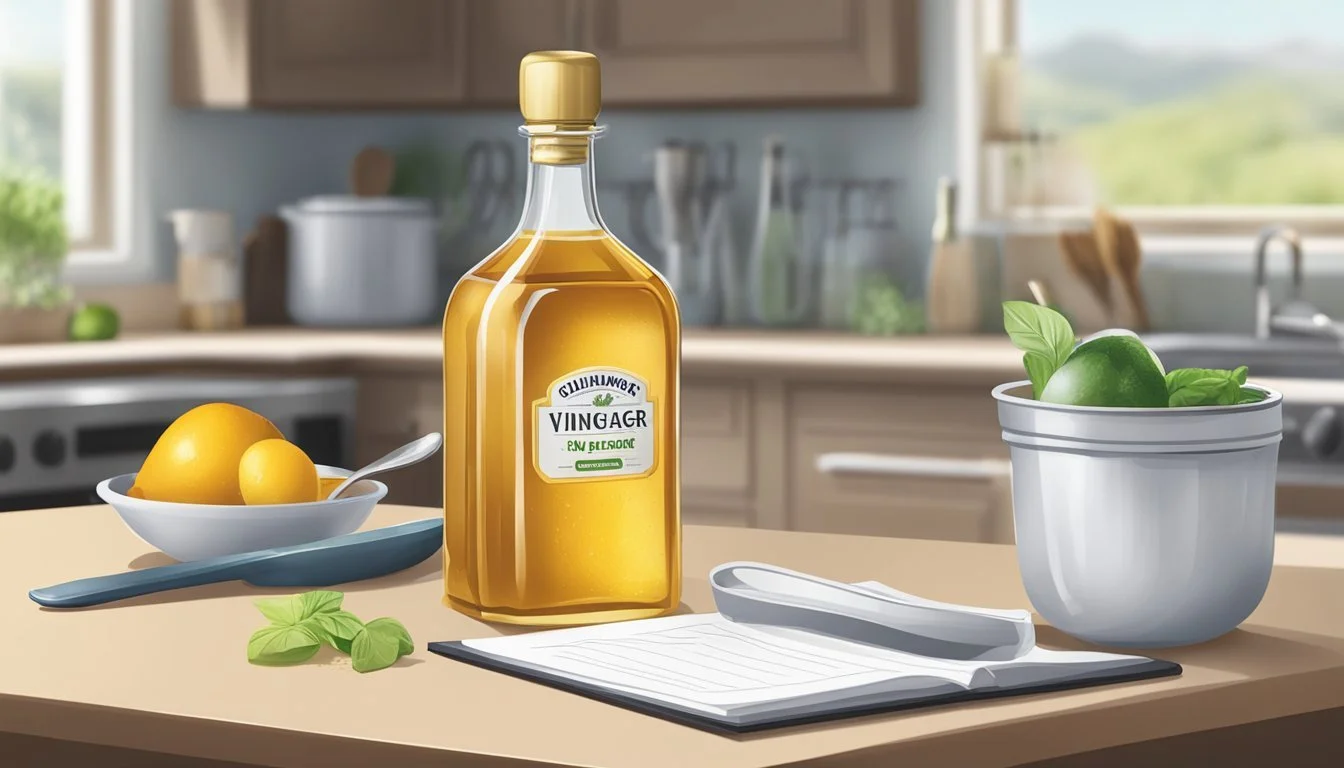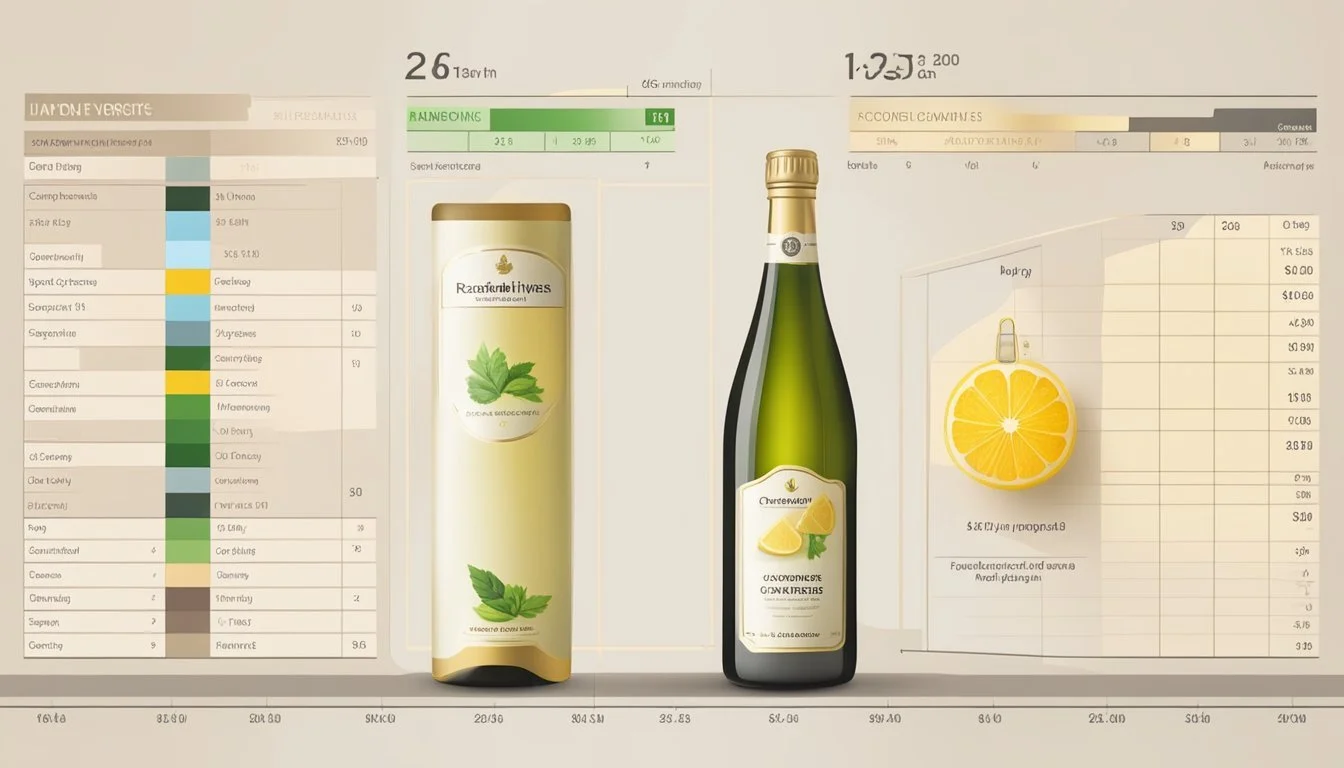How much champagne vinegar per day is too much?
Understanding Daily Limits
In the realm of culinary enhancers, champagne vinegar stands out as a sophisticated and versatile ingredient. It elevates dishes with its distinctive, mild acidity and subtle, wine-infused flavor. While incorporating this vinegar into recipes can enhance flavors without adding significant calories, moderation is key. Consumers often wonder how much champagne vinegar per day is beneficial and what amount could be considered excessive.
Determining the appropriate daily intake of champagne vinegar involves understanding its effects on the body. Vinegars, in general, have been associated with health benefits, such as potential blood sugar regulation. However, they are also acidic and can impact digestive health and, albeit less common, may influence potassium levels if consumed in high quantities.
The prevalent use of champagne vinegar is in dressings and vinaigrettes, where it imparts a delicate flavor to salads and marinades. While it is not known for being a rich source of nutrients, its low-calorie content makes it a preferred choice for those looking to maintain a healthy diet without compromising taste. The key is to integrate it into a balanced diet without overindulgence, as with any food or condiment. To ensure one reaps the benefits of champagne vinegar without adverse effects, it is crucial to consider the recommended quantities and how they fit into the broader context of one's dietary patterns.
Understanding Champagne Vinegar
Champagne vinegar is a specialty vinegar that originates from the same grapes used to make champagne. Its production involves the fermentation of the grape juice into wine, followed by a secondary fermentation to produce acetic acid. The result is a vinegar that possesses a subtle tartness and a mild flavor profile.
Unlike balsamic vinegar, which has a sweet and syrupy consistency, or cider vinegar, known for its robust fruitiness, champagne vinegar strikes a delicate balance. It is milder than both red and white wine vinegars; however, it still retains the complexity typical of vinegars arising from fermentation. The aging process, often in oak barrels, imparts notes that can complement dressings, marinades, and sauces without overpowering other ingredients.
The acidity level is a crucial factor in vinegar's culinary applications. Champagne vinegar typically offers a lower level of acidity compared to other vinegars like sherry vinegar. This quality makes it an excellent ingredient for those seeking a milder tang while benefiting from vinegar's digestive and preservative properties.
A versatile condiment, its applications range from enhancing vinaigrettes to acting as a base for pickling liquids. When considering daily consumption, the moderate acidity of champagne vinegar can be favorable, but like all vinegars, it consists mainly of acetic acid, which should be consumed in moderation to avoid potential adverse effects on health.
Health Benefits and Nutritional Profile
Champagne vinegar, though not commonly referenced like apple cider vinegar (ACV), offers a range of health benefits when consumed in moderation. Rich in antioxidants, with a distinctive nutty flavor, it is a staple in numerous recipes such as salad dressings, marinades, and sauces. It also houses a delicate balance of sugars and has been associated with several positive health effects, including blood sugar regulation and weight management.
Balance Blood Sugar
Research suggests that vinegar can help balance blood sugar levels, making it a potentially helpful addition for those managing insulin resistance or type 2 diabetes. The acetic acid in champagne vinegar might play a role in regulating blood sugar after meals.
Weight Management
Integrating champagne vinegar into a reduced-calorie diet can support weight management efforts. It may promote feelings of fullness, which in turn, can help in reducing food intake. Consuming vinegar in conjunction with a meal may delay the release of hunger hormones, contributing to better digestion and increased satiety.
Heart Health
Regular consumption of vinegar might influence heart health positively. Some studies indicate that vinegar can have an effect on cholesterol and triglyceride levels. However, specific research on champagne vinegar is limited, making it essential to consider broader vinegar research for potential benefits.
Dietary Addition
Champagne vinegar is valued for its gastronomic versatility. It enhances flavors in dressings, vinaigrettes, and recipes, making it a popular dietary addition. The health benefits and its ability to complement other ingredients confidently make it a sought-after product in cooking, pickling, and even in soups.
Dental Considerations
When considering the nutritional profile of champagne vinegar, its acidity is noteworthy. Frequent consumption of acidic foods and beverages has the potential to harm tooth enamel. Therefore, moderate intake is recommended to prevent potential dental enamel erosion.
Dermatological Effects
Although vinegar can be part of skincare routines to address issues like skin irritation, champagne vinegar's acidity could be a cause for concern. It is advisable to use it diluted and with caution to prevent any adverse dermatological effects.
Culinary Uses
Champagne vinegar offers a delicate balance of tartness and sweetness, enhancing a variety of dishes from salads to proteins. Its versatility in the kitchen makes it a favored ingredient to introduce complexity and preserve the integrity of the original flavors.
In Marinades and Dressings
Champagne vinegar is a preferred choice for creating marinades that tenderize and infuse meat and fish with flavor. When combined with olive oil, garlic, and herbs, it creates a subtle marinade that doesn't overpower the ingredients. For dressings, its gentle acidity pairs well with Mediterranean salads, complementing ingredients like feta cheese and olives.
Marinade Ratio: 1 part champagne vinegar to 3 parts oil
Dressing Tip: Whisk together with mustard for an emulsified vinaigrette
As a Pickling Agent
The use of champagne vinegar as a pickling agent extends beyond traditional cucumber pickles. It can preserve and enhance vegetables like carrots and onions, adding a light, refreshing taste without the sharp bite of stronger vinegars.
Pickling Mixture: Equal parts water and champagne vinegar, with salt and sugar to taste.
Enhancing Flavors
A splash of champagne vinegar can brighten up soups and gazpacho, lending a touch of acidity that lifts the dish’s overall flavor profile. Its mild character is also suitable for drizzling over rice dishes to add freshness, or stirring into potato salad for a zesty twist.
Soup Recommendation: A teaspoon of champagne vinegar added just before serving
Potato Salad: Mix in with mayo-based dressing for added tang
International Cuisine
Champagne vinegar finds its place in international cuisine; in Japan, it can complement sushi by seasoning rice, while in Europe, it's often used in sourdough breads. Its application in these diverse culinary traditions underscores its adaptability and the subtle, yet significant enhancement it provides.
Sushi Rice: Season with a conservative amount to preserve the rice’s natural sweetness
Sourdough Breads: Use in the starter to foster a light sour flavor
Daily Consumption Recommendations
Champagne vinegar, containing acetic acid, can be safe to consume in small quantities. However, it is crucial to adhere to safe dosages to avoid adverse effects. This section discusses the appropriate amounts of champagne vinegar to consume, potential risks, interactions with medications, and considerations for certain populations.
Safe Dosages
Research suggests that moderate consumption of vinegar is generally safe. Experts have not established a universally recommended amount, but small doses, typically one to two tablespoons (15-30 ml) diluted in water per day, are considered safe for most adults.
Potential Risks and Side Effects
While vinegar is widely consumed, it may cause side effects in some individuals, such as throat irritation, nausea, and low potassium levels. High intakes may also lead to tooth enamel erosion due to its acidity. Diabetics, particularly those who are insulin resistant or taking medications such as Glucophage or Avandia, should note that vinegar can affect fasting blood sugars.
Interactions With Medications
Vinegar can interact with certain pharmaceutical medications. Those on diabetes medication should be cautious, as vinegar's ability to affect blood sugar levels may augment the drug's impacts. Always consult with a healthcare provider before introducing vinegar into the diet if taking any medication.
Special Considerations
Individuals who are overweight may find champagne vinegar to be a useful component in their diet due to its potential effect on blood sugar levels. However, for those prone to gastric disorders or infections, excessive vinegar can exacerbate these issues. Pregnant women and people with pre-existing health conditions should consult a healthcare provider before consumption.






